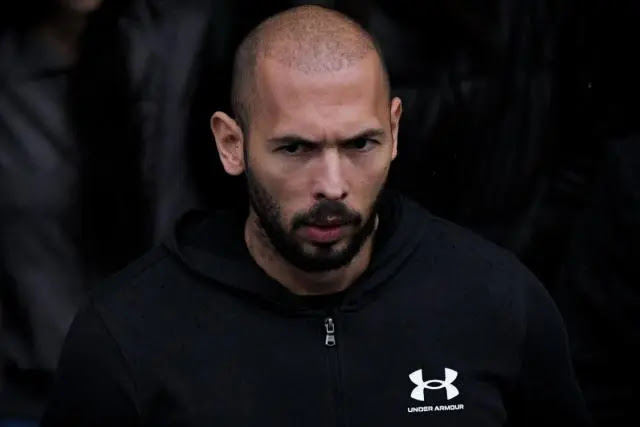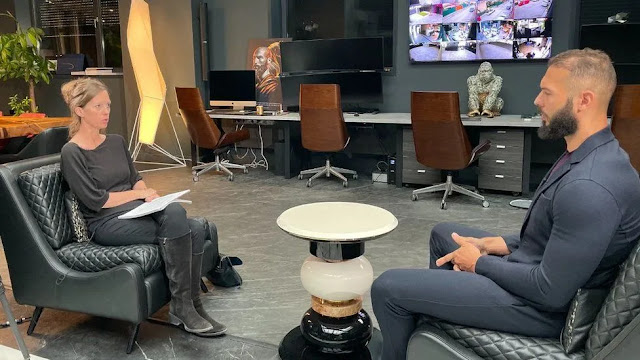 |
| Andrew Tate • Misogyny |
Misogyny is a deeply rooted issue in our society that continues to affect women in various ways. It encompasses prejudice, discrimination, and contempt towards women based solely on their gender. While progress has been made in recent years toward gender equality, there are still individuals who perpetuate misogynistic beliefs and behaviors. One such individual is Andrew Tate, a controversial figure known for his provocative views and public presence on social media platforms. In this article, we will explore the topic of Andrew Tate, his views on misogyny, his interview with BBC News, and the impact of his social media presence.
Who is Andrew Tate?
Andrew Tate is a former professional kickboxer and reality TV star turned entrepreneur and social media personality. He gained prominence through his participation in reality shows and subsequently built a following on various social media platforms. While he initially gained attention for his achievements in kickboxing, it is his controversial views on topics like gender, relationships, and women that have sparked intense debates and criticism.
Misogyny and its Implications
Misogyny refers to the deep-seated hatred, prejudice, and discrimination against women. It manifests in various forms, such as sexist jokes, objectification, gender-based violence, and unequal treatment. Misogyny not only perpetuates harmful stereotypes and inequalities but also has severe consequences for women's mental and physical well-being.
Andrew Tate's controversial views
Andrew Tate has gained notoriety for his provocative statements and behavior, which many argue are misogynistic in nature. His views on women often include generalizations and stereotypes, painting a negative and demeaning picture of the entire gender. These views have faced significant backlash from both the public and fellow celebrities who advocate for gender equality.
Andrew Tate's interview with BBC News
In a recent interview with BBC News, Andrew Tate had the opportunity to defend his views and shed light on his perspective. The interview covered various aspects of his controversial statements, delving into his motivations and the reasoning behind his beliefs. The interview drew significant attention, both from supporters and critics, who analyzed and dissected the conversation.
Andrew Tate's Presence on social media
Andrew Tate utilizes various social media platforms to share his controversial views and engage with his followers. His content often sparks heated debates and garners a significant amount of attention. While some individuals may agree with his opinions, others find them offensive, degrading, and harmful. The impact of his presence on social media extends beyond his immediate followers and contributes to the larger societal discourse on gender roles and equality.
Addressing misogyny in society
Misogyny is a systemic issue that requires a collective effort to address. Challenging and dismantling misogynistic beliefs and behaviors is crucial for creating a more inclusive and equitable society. This involves promoting gender equality, educating individuals about the harmful effects of misogyny, and fostering respectful attitudes toward all genders.
 |
| Interview • BBC News |
Conclusion
Andrew Tate's controversial views on women and his presence on social media have sparked intense debates and discussions. While it is important to acknowledge and address misogyny in society, it is equally crucial to engage in these conversations with empathy, respect, and a commitment to promoting equality. By challenging and dismantling misogynistic beliefs, we can strive toward a more inclusive future where all individuals are treated with dignity and respect, regardless of their gender.
FAQs
1. How does Andrew Tate define misogyny?
Andrew Tate defines misogyny as a deep-seated prejudice and contempt towards women based solely on their gender. His views often involve generalizations and stereotypes that paint women in a negative light.
2. What are some examples of Andrew Tate's controversial behavior?
Andrew Tate has made numerous controversial statements and engaged in provocative behavior. Some examples include making derogatory remarks about women, promoting traditional gender roles, and engaging in online arguments with critics.
3. What were the main points discussed in Andrew Tate's interview with BBC News?
In his interview with BBC News, Andrew Tate discussed his motivations and beliefs regarding women, relationships, and gender roles. The conversation covered topics such as feminism, gender equality, and the societal impact of his views.
4. How has Andrew Tate's presence on social media affected his followers?
Andrew Tate's presence on social media has had a polarizing effect on his followers. While some individuals may resonate with his views, others find them offensive and harmful. His controversial content often sparks heated debates and contributes to the broader discussion on gender equality.
5. What can individuals do to address misogyny in society?
Addressing misogyny requires collective effort. Individuals can play a role by challenging and questioning sexist beliefs, promoting gender equality, and supporting organizations and initiatives that aim to empower women. Education and awareness are key to fostering a more inclusive society.


.png)
.webp)
.png)